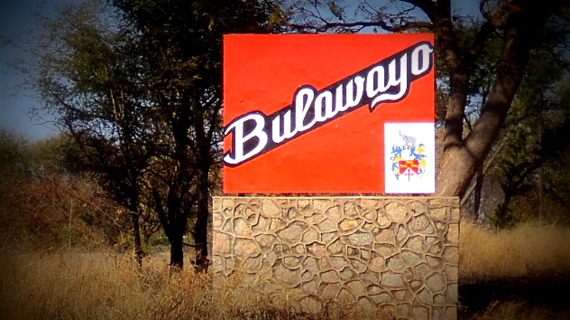
BULAWAYO is famed as the City of Kings largely due to its rich epic regal history of King Mzilikazi and Lobengula Khumalo and the Mambos before them.
No Holds Barred with Dumisani Nkomo [email protected] ___________________________________
Is Bulawayo, or more generally Matabeleland, or even more broadly the southern region of the country, able to produce an individual that can lead the whole country or is Matabeleland doomed to be a perpetual political bridesmaid? I am in no doubt that Matabeleland is capable of producing a president, but the question is; are Zimbabweans ready to elect a leader by virtue of the content of his/her character or leadership acumen rather than ethnicity as is the norm in Africa?
I would not like to live in a country where I or my children and kinsmen cannot dream of occupying the highest office in the land. Obviously to dream is one thing and to attain it is another, but at least every Zimbabwean should be able to contest for political office and indeed aspire even to be president. Surely Jason Ziyapapa Moyo and Josiah Tongogara died for a Zimbabwe in which any Zimbabwean of any ethnic group or race cannot only vote, but also be voted into any office including that of head of State and government.
The historical political architecture of the land seems to suggest that on many occasions Zimbabweans have displayed an ability to transcend ethnicity as evidenced by the ethnic diversity of nascent nationalism under the leadership of the likes of Benjamin Burombo, Stanlake Samkange and more prominently, Joshua Nkomo.
The nationalist movement at one point seemed poised for leadership of a Ndebele, Joshua Nkomo, until the emergence of Zanu under Ndabaningi Sithole and it can be argued that some Zanu protagonists, including Enos Nkala, were not necessarily Shona. Some argue that Zanu was formed out of ideological rather than ethnic considerations, but it is irrefutable that the genesis of Zanu was accompanied by the systematic tribalisation of politics.
The problem has become so bad that almost every political party formed has a Ndebele vice-president and a Shona president.
It has become political culture for political parties to follow this trend, but the bigger question is whether Simon Khaya Moyo, Thokozani Khuphe or Lovemore Moyo could be leaders of their parties if the incumbents left office or they will remain as vice-presidents or national chairpersons.
- Chamisa under fire over US$120K donation
- Mavhunga puts DeMbare into Chibuku quarterfinals
- Pension funds bet on Cabora Bassa oilfields
- Councils defy govt fire tender directive
Keep Reading
In the same vein, can Welshman Ncube or Dumiso Dabengwa contest for the national presidency and win or lose by dint of their acumen rather than their ethnic origin? If not, I fear Zimbabwe is headed for troublesome times, as I don’t see future generations or indeed this one willing to be perpetual hewers of wood and drawers of water in a later day political feudal system which will reduce them to perennial deputies.
It is not necessarily about whether one is Ndebele or Shona, but rather content, ability, acumen and capacity to lead the state. It does not matter whether one is black or pink, speaks Ndau or Sotho, it should simply be based on merit. David Coltart or Eddie Cross can stand for the presidency as long as they can deliver as head of State and government .
This is the reason why arguably the most powerful country on the planet is led by a black man. It is not because he is black, but rather because he was able to galvanise the electorate and country around his ideals. Importantly, the national political architecture — in spite of years of systematic racism — allowed for a man such as Barack Obama to emerge and lead. I would like to suggest that ethnicity should not be the sole and defining determinant of our political choices.
Can a candidate from Matabeleland contest and win in the 2013 elections and beyond? Can Matabeleland, the Midlands and possibly Masvingo, produce politicians that are not mere political ornaments bequeathed upon the people through the patronage of ethnic balancing?
Welshman Ncube faces an uphill task in the elections because of the embedded dominance of Robert Mugabe and Morgan Tsvangirai. Can he contest on an equal footing with Mugabe and Tsvangirai or will he carry the added weight of ethnicity upon his shoulders? It would be disappointing, however, if people voted on tribal grounds .
The good news is that the generation that will vote in 2018 will comprise mainly of not only born-frees, but new millennium, techno-centric youths born as late as 2000.
It will be a generation that did not see the liberation struggle, Ian Smith, “dissidents”, or the post- independence turbulence. It will be a generation that requires a new breed of leaders who appeal across the ethnic divide.
As to whether a candidate from Matabeleland can win the 2013 elections, I have my strong doubts. For now Matabeleland will be a kingmaker, but as for 2018 and beyond, Bulawayo and Matabeleland will be the seat of kings and queens in a literal political sense.
Dumisani Nkomo is an activist and opinion leader










